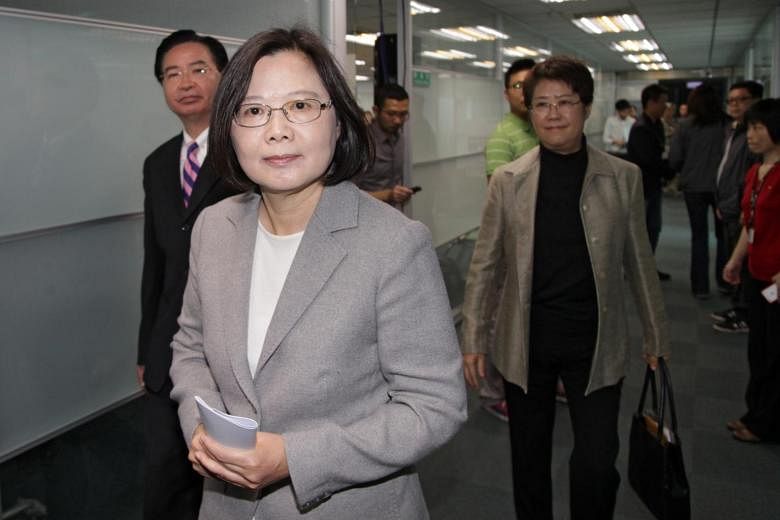TAIPEI (Reuters) - Taiwan's independence-leaning government on Friday (April 15) named a foreign affairs official and a former fighter pilot to the top posts for China policy and defence, underscoring its intention to engage with China and build its own jets and submarines.
The appointment of Ms Chang Hsiao-yueh, a 40-year foreign affairs officer, as chief of the ministerial-level Mainland Affairs Council, comes amid uproar in Taiwan over the forcible deportation of more than 40 of its nationals from Kenya to China.
Taiwan's relationship with China is "a tough challenge", said incoming Premier Lin Chuan, who announced the appointment. "The two sides have different opinions, contradictions. This requires a leader who has goodwill and can communicate."
Ms Chang, 63, will be the second woman to lead the council, following President-elect Tsai Ing-wen, who was the first woman to hold the key post in the first half of the 2000s.
"National security has gone beyond the traditional definition of security," Ms Tsai said in a speech. "The situation in international and cross-strait relations is also different from the past."
Ms Chang's foreign postings have included the United States, Britain, the Netherlands and Australia. She was Taiwan's ambassador to St Kitts and Nevis, one of fewer than two dozen small countries that officially recognize Taiwan.
Mr Lin also named Mr Feng Shih-kuan, a former military attache, to be defence minister.
After a career in the military, the 71-year-old headed Aerospace Industrial Development Corp (AIDC), Taiwan's state-backed aerospace manufacturer, which built its first homegrown jet fighters and supports its fleet of F-16s.
China deems self-ruled Taiwan a renegade province to be taken back by force if necessary. Beijing is warily watching Ms Tsai Ing of the pro-independence Democratic Progressive Party (DPP), who will take power in mid-May after a landslide win in national elections in January.
Ties between Taiwan and China improved rapidly after the China-friendly Ma Ying-jeou became Taiwan's president in 2008 and signed several landmark trade and business deals.
But China has looked on with suspicion since the DPP won the presidential and parliamentary elections in January.
The DPP has championed an indigenous defence industry to achieve its twin aims of stronger weapons production and more economic growth. Taiwan's main arms supplier is the United States, which is obligated by US law to support the island's defence needs.
Taiwan's military has been considering how to upgrade or replace its aging advanced jet trainers, but no funds have been budgeted yet.
It allocated TW$3 billion for four years from 2016 to launch a long-awaited programme to build its own diesel-electric submarines.

